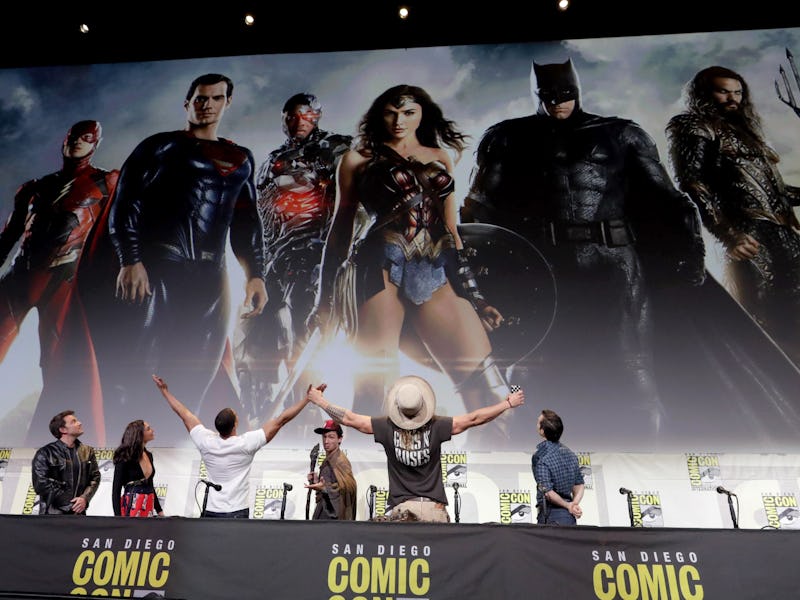DC’s New Secret Weapon is Director-Driven "Elseworlds" Movies
The most underreported part of the James Gunn era is also the most promising.

When Man of Steel swooped into theaters almost 10 years ago, the audience response fell into two camps.
On one hand, it was clear that director Zack Snyder had an angle on Superman that was ambitious, philosophical, and contemporary. Yet that vision just wasn’t fit for the mainstream. Man of Steel was big and unwieldy, almost two and a half hours of cold color palettes and an exhausting climax.
Snyder is arguably one of the few auteurs of the superhero era, but he may not have been the ideal director to launch DC’s singular shared universe, at least not as long as it wanted to compete for the same box office billions Marvel was raking in.
But Snyder’s arresting interpretation of Superman and superheroes is still something to behold. Just like how Frank Miller’s enduring The Dark Knight Returns added to the mainstream Batman canon rather than supplanting it, what is now called the “Snyder-verse” ought to have existed in tandem to whatever was actually meant to shill toys and breakfast cereals.
Now, DC is doing what it should have from the start. On Tuesday, DC Studios co-chair James Gunn peeled back the curtain on the future. Formally titled “Chapter One: Gods and Monsters,” this new shared universe includes a new Superman film written by James Gunn, a new Batman and Robin movie, a Green Lantern TV series, and something called Creature Commandos.
But in addition to the Chapter One slate is a side hustle: “Elseworlds,” an anthology of standalone films granted creative and narrative independence from the shared universe. There are already two high-profile Elseworlds movies: 2019’s award-winning Joker, and 2022’s The Batman. Both have sequels in various stages of production, which are sure to officially bear the Elseworlds label. Future movies and shows that will fall under Elseworlds have yet to be revealed, but they’re coming.
Joker, released in 2019, is unofficially among the first standalone DC movies to be part of a new “Elseworlds” label.
An all-encompassing “sub-franchise” of standalone, director-driven DC movies is ideal for a studio with a once sterling reputation for being great to work with. WB’s reputation has soured these last few years; the studio famously meddled in DC movies like Suicide Squad, and the sudden vaulting of Batgirl was the industry story of 2022. Elseworlds could be a step forward in WB rebuilding lost goodwill, as it invites filmmakers to pitch and pursue their movies without fretting about canon.
Elseworlds has fan-friendly creative benefits too. The namesake is taken from a popular imprint of DC Comics where creators imagined strange, sometimes surreal takes on DC’s vast toy box, many of which could make for compelling movies. A Batman in Victorian England who fights Jack the Ripper? That’s Gotham by Gaslight by Mike Mignola. A Superman who landed in Ukraine and becomes a paragon for the Soviet Union? Superman: Red Son by Mark Millar. A near-future dystopia where Superman comes out of retirement to squash a new generation of irresponsible heroes? Kingdom Come.
DC fans dug Elseworlds. The stories ruled, if only for the novelty of seeing a different Batman or Wonder Woman. Movie versions of Elseworlds stories could be just as enticing, and audiences are smart enough to understand the multiverse. For those who don’t, it doesn’t matter. The Batman grossed $770 million. Audiences went to see it because it was a Batman movie. In the end, that’s all anyone needs to know.
This article was originally published on